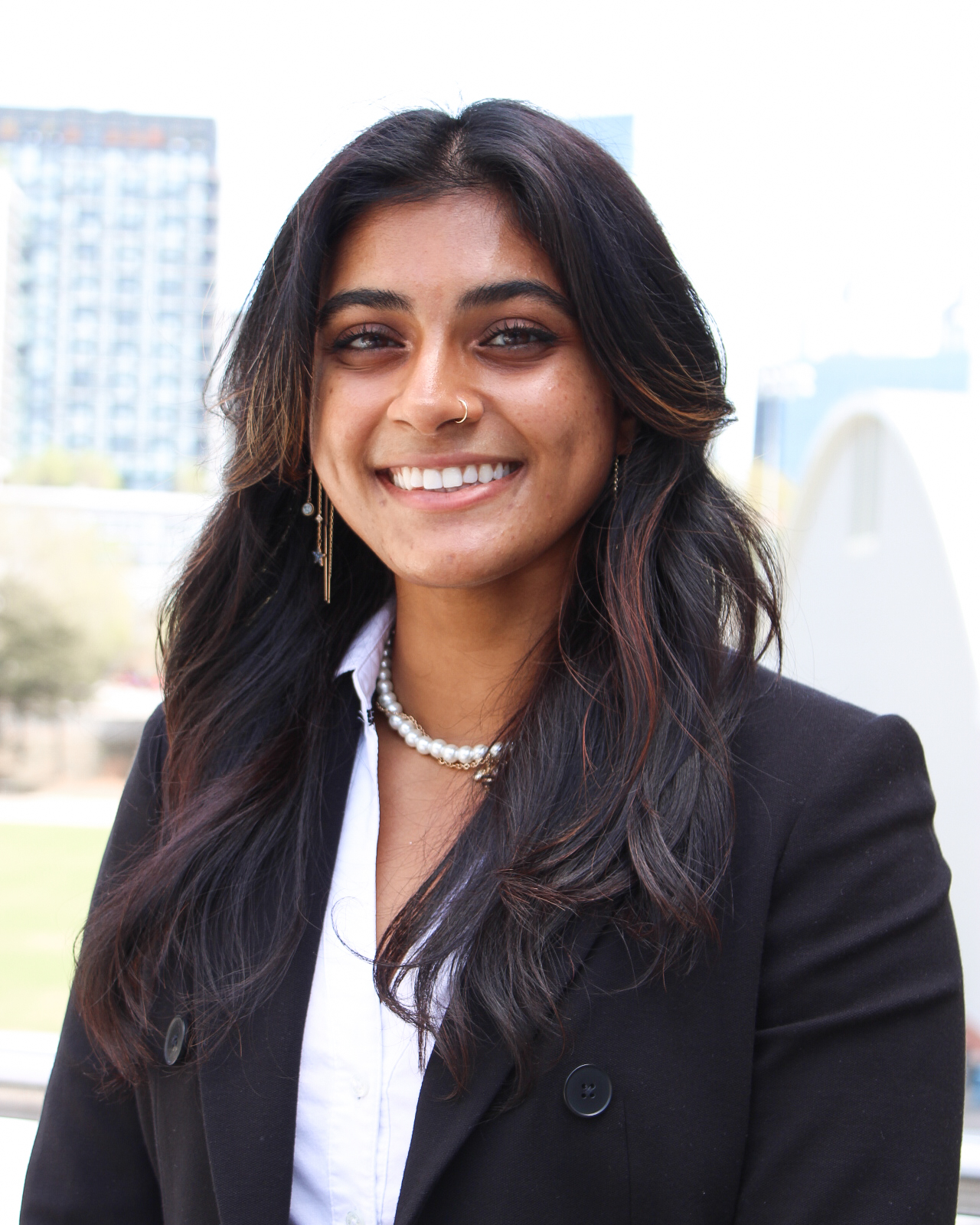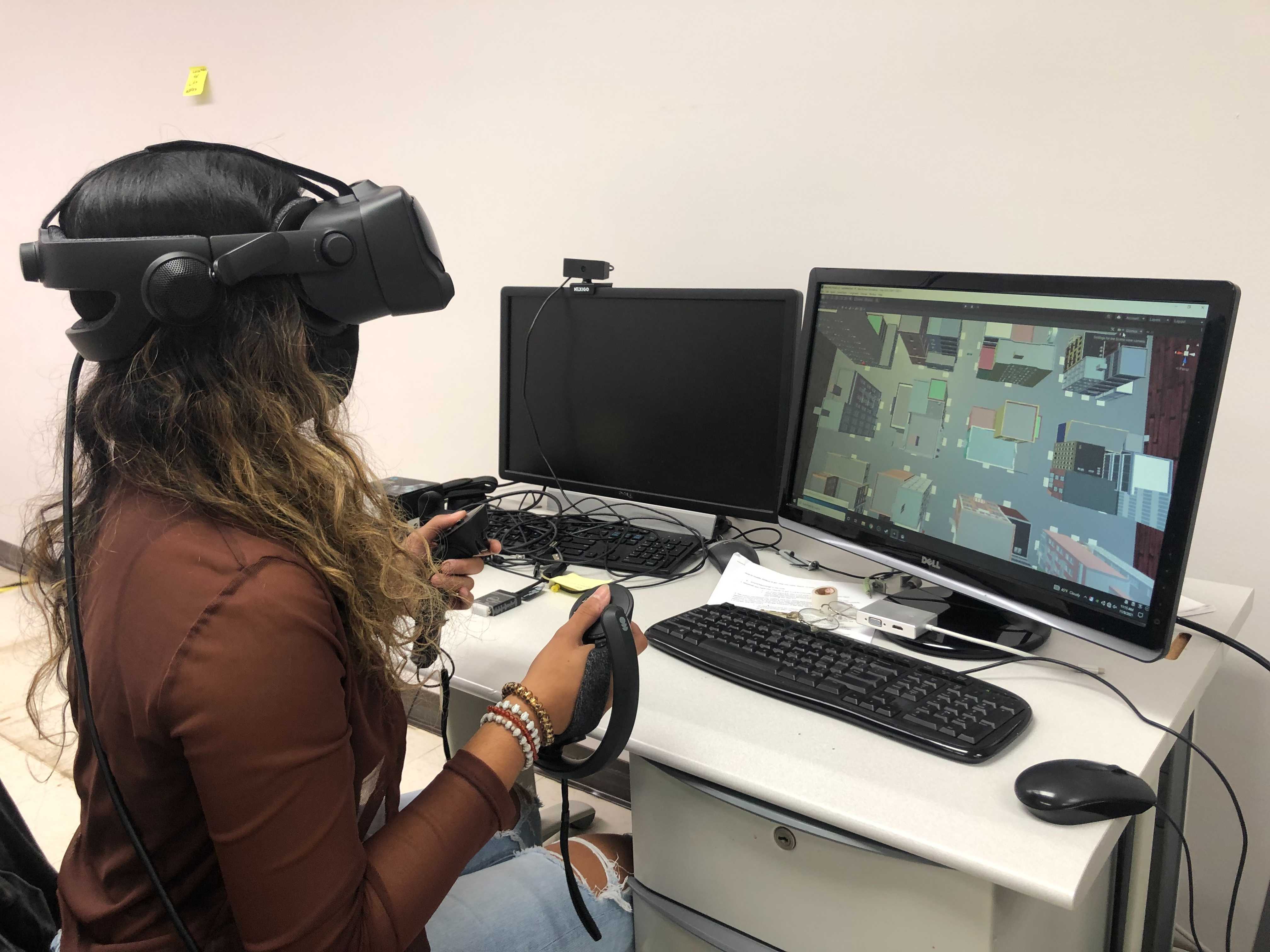Anisha Kanukolanu is 4th-year Neuroscience major studying aging-related impairments of spatial navigation ability with Dr. Michael Borich.

How long have you been an undergraduate researcher at Georgia Tech?
I began my Undergraduate Research Journey in January 2021 with the Neural Plasticity Research Lab (NPRL).
How did you get involved with undergraduate research?
Coming to Georgia Tech, I knew I wanted to get involved with research as soon as possible, as this was something I wanted to do my whole life but couldn’t gain access to in high school. During my first semester, I enrolled in the Undergraduate Research section of GT 1000 and began looking at labs almost immediately. I leveraged the Undergraduate Research Ambassadors and my amazing GT 1000 team leaders to draft and send a emails to my labs of interest. Fortunately, following a brief interview with Dr. Borich about NPRL, I dove into undergraduate research within the month.

What are you working on?
My work as an undergraduate researcher in the NPRL focuses on studying the behavioral and biological correlates of aging-related impairments in spatial navigation ability. With the encouragement of my advisors, I have pursued this through the development of a novel virtual reality (VR) maze task (referred to as “NavCity”) that I developed during my time in the NPRL. This VR maze provides an immersive simulation, mimicking human navigation in the natural world. Over the years, I have also been very fortunate to contribute to various other studies and projects within the lab.
My most recent work, which I presented a conference through the PURA travel grant, measures aging-related effects on the use of allocentric reference frames during navigation. An allocentric reference frame refers to representations through which landmarks are coded relative to each other, in a viewer-independent manner. We hypothesized that, compared to younger adults, older adults would exhibit decreased navigation ability in NavCity that would be correlated with lower allocentric reference frame utilization which was characterize using a novel cognitive map allocentric representation assessment (CMARA) MARA. Our findings strongly supported prior work, demonstrating older adults have lower navigation performance than younger adults and suggesting that lower performance may be related to reduced utilization of allocentric reference frame information while navigating novel, naturalistic, VR environments.
Currently, I am working on my independent thesis project, in which I am studying the effects of aging on task-based functional connectivity in spatial navigation networks using fMRI. In this project, I aim to investigate the neural correlates underlying aging-related navigational deficits, measuring differences in task-based functional connectivity between the retrosplenial cortex and hippocampus in younger and older adults. My thesis research will work towards characterizing the relevance of connections between these brain regions for reference frame utilization during navigation, which may serve as a potential early indicator of the onset and progression of aging-related cognitive decline.
What is your favorite thing about research/researching?
My favorite part of research has definitely been the people I have been fortunate enough to meet and connect with. This past summer, I was awarded a fellowship to conduct research at Technische Universitat Berlin as a DAAD-Rise Intern. Through the experience, I not only got to learn about spatial navigation through a new lens, but I also met and worked with leaders in navigation and aging research. The people I have met have given me a plethora of support as I have begun to further progress in my journey as a researcher.
What are your future plans and how has research influenced them?
Prior to conducting undergraduate research my career goals were to pursue an MD. However, the amazing mentorship and experience I have had through research at Tech led me to change my long-term plans slightly. My long-term goal is to leverage global perspectives in developing individualized neurorehabilitative treatments and diagnostics for aging-related cognitive decline and neurodegeneration. Following my graduation, I intend to pursue a joint MD/PhD so that I may leverage my role as a physician scientist to innovate both in the clinic and in the lab and bring cutting edge techniques and methods to best serve my patients and subsequently my research. I aim to develop easily accessible and reliable diagnostic testing to improve early detection of neurodegenerative disease and provide novel individualized neurorehabilitation treatments to improve quality of life for patients experiencing aging-related neurodegeneration. Additionally, I hope to bridge international knowledge to learn from and collaborate with labs around the world to tackle this global challenge.
